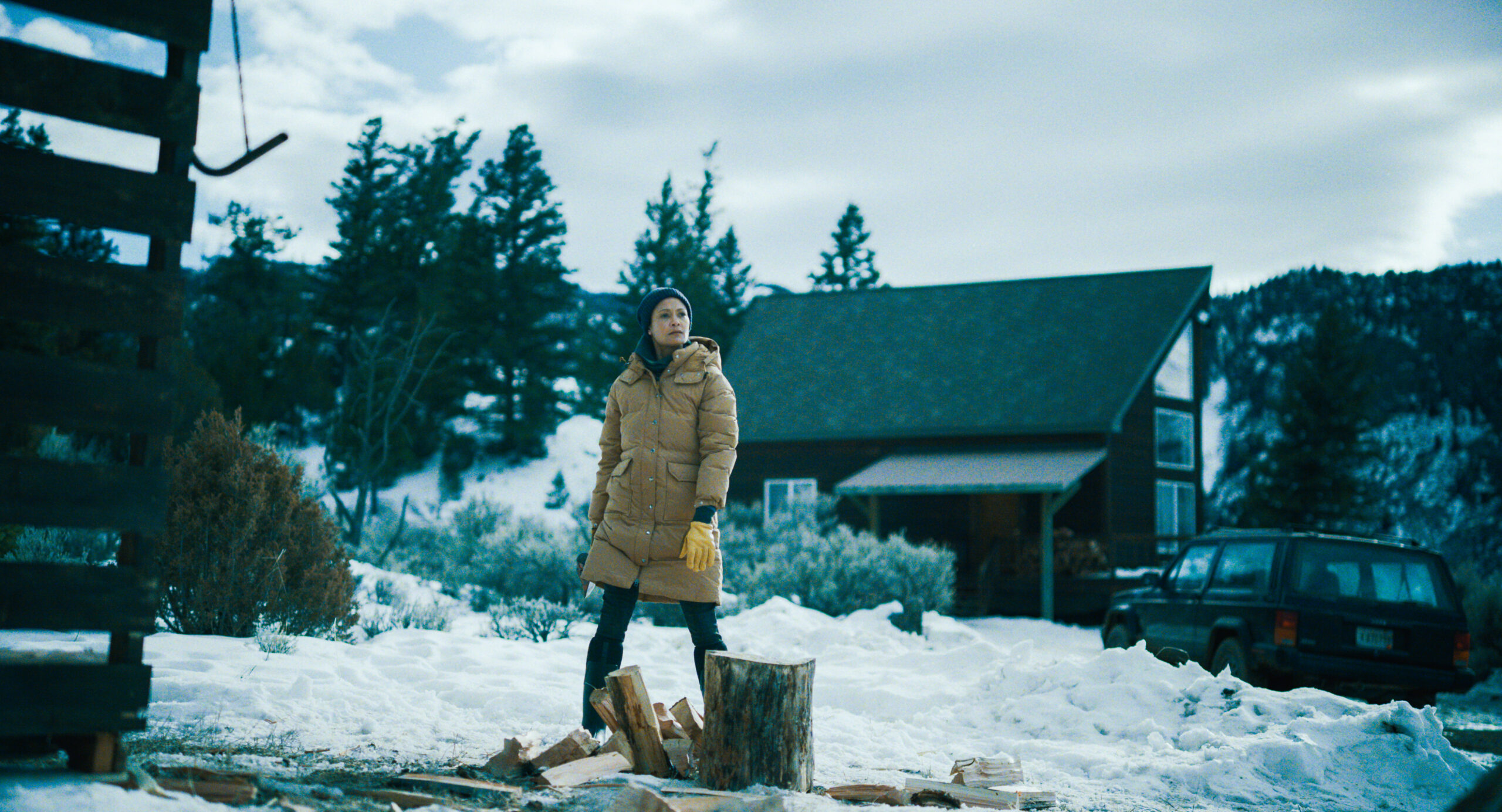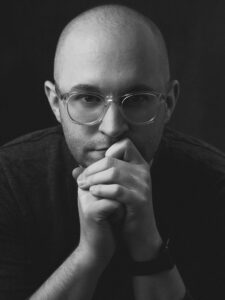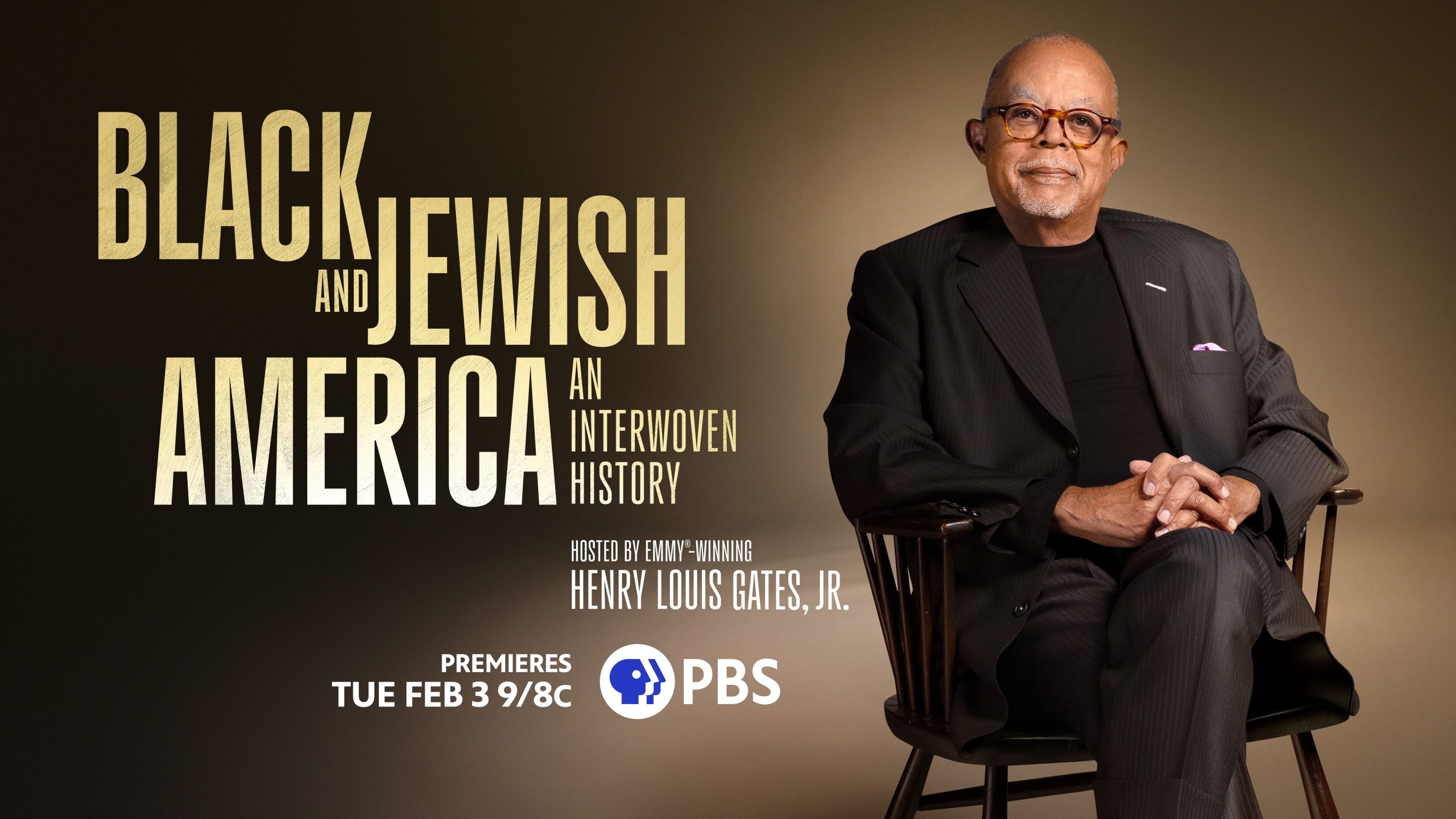
Director/co-writer Julian Higgins recently spoke with Solzy at the Movies about G-d’s Country, a modern Western starring Thandiwe Newton.
IFC Films acquired the North American rights shortly after its premiere during the 2022 Sundance Film Festival. Directed by Higgins from a script co-written with Shaye Ogbonna, the film stars Newton, Jeremy Bobb, Joris Jarsky, Jefferson White, Kai Lennox, and Tanaya Beatty. The film was released in theaters on September 16 and is now available to watch on VOD platforms.

It’s so nice to meet you. How are you doing?
Julian Higgins: Very good. Nice to meet you, too, and thank you for having me.
When did you know you wanted to make “Winter Light” into a film?
Julian Higgins: Wow. Basically, I knew right away the moment I read it. I had finished my graduate thesis film in 2010. My mom saw, as she always does, that I was feeling a little disoriented. I didn’t have a project to work on. She was like, you should read some, some good writing and she handed me James Lee Burke’s book of short stories and it was the first story in there. I remember almost feeling hungry while I was reading it. I started it and it was so gripping. I knew I had to do something with it right away, I just didn’t know why or what that would be. That was 2010. In 2014, I made a short film of that short story, which was a pretty direct adaptation. The main character in the short story is an older retired white male college professor who confronts these two hunters on his property. That’s what the short story is and then that’s what the short film was. I thought that was it because I didn’t think there was enough material there to make a feature out of it.
What happened was that that old thing, the 2016 election, took place and the story just really came back to me at that moment because the framework of the story is so simple but it contains a lot of opportunity to talk about conflict. At that time, I was feeling so many feelings about what was happening in the country. I felt like I had to put that into some kind of art—I had to use my art to respond. The story came flooding back to me, to be honest. Shaye Ogbonna, my writing partner, and I changed the main character and now it’s Thandiwe Newton instead of the old white guy and that allowed us to really dig in and access these very important issues that we wanted to talk about because this character experiences the country in a very different way than an older white man. We really opened up the possibilities and we built the adaptation on that.
How quickly did you all write the first draft?
Julian Higgins: Oh, it’s not quick at all. (Laughs) I think if you’re trying to do something for yourself to make as opposed to writing to sell a script or something like that, you end up just doing a lot of work and a lot more drafts. Shaye and I worked on—frankly, we talked about what we wanted to deal with in the movie for about six months before we even wrote anything. We were outlining it with note cards on the floor of my living room. We were just obsessed with trying to pour all of our feelings into this movie. We spent about another year working on five drafts of the script before we ever showed it to anybody to try to get it made. We were getting a lot of feedback throughout the writing process but I think draft five was the first one that we tried to move on. It really was like a year and a half to two years of screenwriting. It was another extended process of getting the movie made and of course, you never really stop writing. We were rewriting scenes and when the actors come in, they give you a lot of ideas and so we never really stopped writing the script. I think we just finished it right before the movie came out.
Can you talk about directing this cast?
Julian Higgins: Absolutely. It’s a small and mighty cast obviously spearheaded by Thandiwe in this lead role and she’s in every scene of the movie. If you’re a fan of Thandiwe, then this is the movie for you. She gets to do everything in this movie. We tried to create a very rich character with a lot of variety and a lot of interesting things for actor of caliber to chew on. Jeremy Bobb, Kai Lennox—these are great character actors have been in so many things. Jefferson White from Yellowstone doing something very different than he does on Yellowstone. Tanaya Beatty. Joris Jarsky from Canada was the one who surprised me the most because he really fought for this role. He would not let up, he insisted on a meeting with us. We met with him and by the end of that meeting, we were taking notes on the character from him.
Everybody came to this with a lot of passion and a lot of commitment to telling this story. I think everyone takes their cue from the lead on a movie, including the crew, and Thandiwe was so invested in the story and in telling the story and filling it with authenticity, as far as she was concerned, putting her really her all into it. Honestly, we had a great time. That’s the answer to your question. It was wonderful to work with these people and I wish we could just keep making the movie because it was really a joy. I’m very much an actor’s director—acting was my first real passion and so this is my favorite part of the process. We had a cast that just really went to different places and did good in my opinion. I know I’m biased but—
How quickly did you all find the right location once you started scouting in Montana?
Julian Higgins: I love that your questions start with how quickly because nothing is ever fast on an independent film. The short was shot in Montana. When I went back years later, we were looking in the area where we shot the short but then for various reasons, we expanded our search. We ended up driving all over the state—multiple trips. You always wonder if there’s a even better location out there. I felt so paranoid because Montana is such a beautiful place that we would miss—we wouldn’t be able to capture how beautiful I find it when I go there. We looked far and wide for these locations and that’s why you go to Montana. We could have shot the movie in Big Bear or something but we went to a place that is maybe a little harder to get on film but boy, is it that worth it. Our whole schedule was built around this travel time that was required to get to these remote places. I really was hoping we would make an epic film and I think I’m very proud of how it came out.
Pandemic aside, what was the most challenging aspect of the production?
Julian Higgins: You know the back story? That we shut down, we had to wait a year, we went back and finished it. The most challenging part? I mean, the pandemic is what pops to mind. I get it. It’s not often that your movie gets interrupted by a once-in-a-century pandemic and you have to wait a year to finish shooting it. But everything is challenging with a film—it’s not the easiest job in the world. However, it is really an incredibly satisfying challenge. A lot of things come up.
I would say the locations were a major challenge because it’s harder than you might think to find a kind of fairy tale house at the edge of the forest at the end of a long road. We looked. We had people driving up every road in a 50 mile radius of our hotel, trying to find his house. We found it about a week before we needed to shoot there, which is not great for production. But when you find the right place, you have to say yes to it. Location scouting is very challenging. It was very scrappy, in terms of the budget. I don’t know. There’re a lot of challenges when you make an independent film and there’s so many stories. This is the thing is, when you have a lot of limitations, that’s when your creativity really comes into play. What I was consistently proud of was how our small team was able to solve these problems that came up. We got so many curveballs but at the end of the day, I think we made something we can stand behind.
How bummed were you to miss out on the in-person premiere during Sundance?
Julian Higgins: Well, it’s not ideal but frankly, I hadn’t been to Sundance before so I had nothing to compare it to. Frankly, it was a pretty awesome experience. I also just want to say for all the introverts out there, I didn’t mind doing all the stuff from home, to be honest. I felt like I wasn’t missing out on a huge amount. They also had this very fascinating thing that was called the Spaceship. It was a virtual space where you would design an avatar and you could basically go to a party as like a computer game. I actually had a lot of fascinating conversations with people on that spaceship. I think they did an incredible job of making it a very kind of inclusive and fun experience, even though we were all trapped at home. Frankly, as cool as it would have been to premiere in a giant theater—everyone wants that—the fact that we were selected after everything that we had been through and got to have that premiere was incredibly special.
What do you hope people take away from watching the film?
Julian Higgins: This is the question, isn’t it? I think our role as filmmakers is to tell the truth and we’re only ever going to tell the truth from our perspective, but it is a team of people trying to be authentic and honest in expressing feelings, situations, themes. What I don’t find terribly interesting as a viewer is when someone tells me what I should think about at all. I like movies to trust me as the audience member to be thinking about the questions that are being raised. I like when a movie thinks I’m smart. We tried to do that. We were talking about a lot of things that feel really important to us. We’re trying to dramatize things that we’re seeing play out. We’re trying to capture a lot here but it is for you, the audience, to chew on what we’re giving you if you so choose. We made the movie to challenge people and compel them, make them feel things and hopefully they will be thinking about the movie long after they see it.
G-d’s Country is now available on VOD.
Please subscribe to Solzy at the Movies on Substack.






